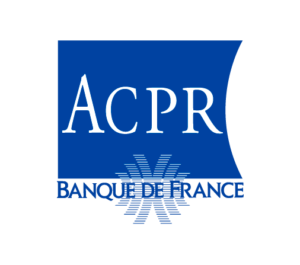ACPR
The ACPR (Autorité de Contrôle Prudentiel et de Résolution) plays a pivotal role in France’s financial supervision and consumer protection. As a key regulatory body, the ACPR ensures the stability and integrity of France’s financial sector. This blog explores the mission, responsibilities, and significant role of the ACPR in safeguarding financial institutions and consumers.
What is the ACPR?
The ACPR, short for Autorité de Contrôle Prudentiel et de Résolution, is a French regulatory body established under the French Financial and Monetary Code. It operates as part of the Banque de France and is responsible for monitoring and supervising banks, insurance companies, and other financial institutions to ensure they adhere to financial stability and consumer protection standards.
The ACPR’s primary mission revolves around prudential supervision—ensuring the solvency and financial soundness of institutions—while also focusing on consumer protection. By maintaining rigorous oversight, the ACPR helps mitigate risks that could affect financial stability in France.
The Mission and Functions of the ACPR
The ACPR’s core responsibilities are divided into two critical functions:
- Prudential Supervision
The ACPR monitors the financial health of institutions like banks, insurance companies, and investment firms. This ensures that these institutions meet regulatory standards and maintain sufficient capital reserves. By doing so, the ACPR safeguards against potential failures that could disrupt the French financial system. - Resolution of Failing Institutions
In cases where financial institutions face insolvency, the ACPR steps in to manage the resolution process. Its goal is to minimize the impact of a failing institution on the economy, consumers, and overall financial stability. The ACPR works closely with other EU bodies, such as the Single Resolution Board (SRB), to implement effective resolution strategies.
Prudential Supervision: A Pillar of Financial Stability
One of the ACPR’s primary objectives is to promote financial stability. Through strict regulations and ongoing monitoring, the ACPR ensures that financial institutions comply with the necessary capital requirements, liquidity ratios, and risk management standards.
The ACPR collaborates with other European regulatory authorities to align its supervisory practices with EU standards, such as those under the Basel III framework. This coordination helps create a unified approach to maintaining the safety and soundness of financial systems across Europe.
Consumer Protection: A Key Priority
Beyond ensuring the stability of financial institutions, the ACPR is also committed to protecting consumers. The ACPR works to ensure that financial institutions offer fair, transparent, and ethical services to consumers. This includes reviewing product offerings, ensuring clarity in financial contracts, and handling consumer complaints.
The ACPR also oversees compliance with anti-money laundering (AML) and counter-terrorism financing (CTF) regulations, ensuring that financial institutions follow strict protocols to prevent illicit activities.
How the ACPR Works with Other Institutions
The ACPR does not operate in isolation. It collaborates with several key institutions, both domestically and internationally. On the domestic front, it works closely with the AMF (Autorité des Marchés Financiers), which oversees financial markets and ensures the protection of investors. The two authorities often share information to ensure a coordinated approach to regulation.
Internationally, the ACPR is part of the European Banking Authority (EBA) and the European Insurance and Occupational Pensions Authority (EIOPA). These collaborations allow the ACPR to stay aligned with European regulations and best practices, ensuring France’s financial sector operates smoothly within the broader European framework.
ACPR’s Role in Crisis Management
In times of financial crises, the ACPR plays a critical role in maintaining stability. Its function extends beyond regular supervision to include crisis prevention and management. When an institution is on the brink of failure, the ACPR takes swift action by implementing a resolution strategy, either by restructuring the institution or facilitating its orderly closure. This process ensures that the impact on depositors, investors, and the wider financial system is minimized.
ACPR’s Focus on Innovation and Digitalization
With the rise of FinTech and digital transformation in the financial sector, the ACPR has also turned its attention to regulating digital financial services. It works to ensure that new technologies and digital banks comply with existing financial regulations, while also adapting its supervisory practices to accommodate the evolving financial landscape.
This focus on innovation helps maintain consumer trust in digital banking and financial products, ensuring that consumers are protected in a rapidly changing environment.
The ACPR’s Essential Role in France’s Financial Stability
The ACPR plays a fundamental role in ensuring the safety and stability of France’s financial system. Its responsibilities range from prudential supervision to crisis management and consumer protection. By staying vigilant and adapting to new challenges, such as the rise of FinTech, the ACPR continues to uphold the integrity of the financial sector.
For individuals and businesses operating in France’s financial space, understanding the ACPR’s role is crucial. Whether you’re a consumer or a financial institution, the ACPR’s efforts ensure that the French financial system remains robust, transparent, and trustworthy.









